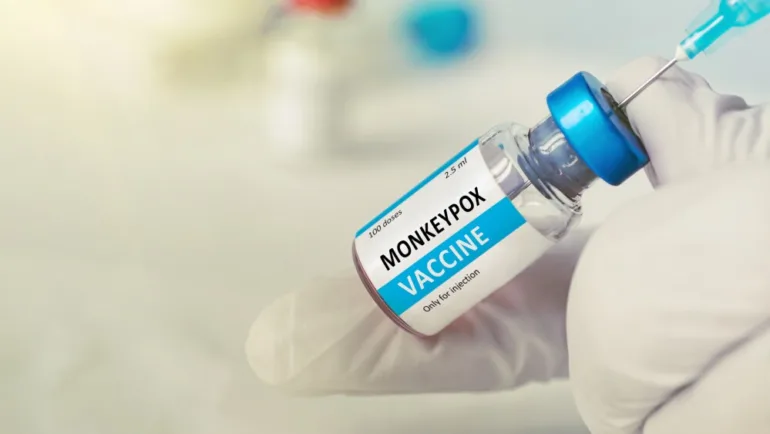Nigeria is set to receive 11,200 doses of the Mpox vaccine, donated by the United States and facilitated by Gavi, the Vaccine Alliance.
According to Gavi’s website, the vaccine shipment has already arrived in Abuja, with delivery expected today, Friday. This donation is part of a larger agreement signed in November, under which Gavi committed to facilitating the donation of 305,000 Mpox vaccine doses to support the global and continental response to the ongoing outbreak.
Gavi explained that the vaccines, manufactured by Bavarian Nordic, have been allocated to affected countries through the Access and Allocation Mechanism for Mpox.
This mechanism is led by the Africa Centres for Disease Control and Prevention (Africa CDC), the Coalition for Epidemic Preparedness Innovations (CEPI), Gavi, UNICEF, and the World Health Organization (WHO).
Global response to Mpox
This donation is part of a broader international effort to combat the Mpox outbreak, which remains a Public Health Emergency of International Concern (PHEIC). Gavi has also provided emergency funding to the Democratic Republic of the Congo, Cameroon, and Rwanda, as well as 500,000 directly procured vaccines, along with funding for delivery and related costs.
In August, Nigeria became the first country to receive a donation of 10,000 Mpox vaccine doses from the US government. Gavi’s efforts have been further supported by the US government’s commitment to providing over one million Mpox vaccines to countries affected by the outbreak.
Additionally, Gavi has established a first response fund to cover the costs of vaccine delivery and other associated expenses. By the end of 2024, nearly 6 million vaccine doses from various nations and organizations are expected to be available globally.
Gavi’s commitment and US partnership
Gavi CEO, Sania Nishtar, expressed gratitude for the US donation, stating, “We thank the US for these donations, which substantially strengthen the global Mpox response.
In addition to the 500,000 doses that Gavi procured directly in September through our first response fund, working with our donors, we now have legal frameworks in place to facilitate a substantial volume of additional pledged doses, which we will work with our partners to ensure are rolled out as quickly as possible.”
Dawn O’Connell, Assistant Secretary for Preparedness and Response, emphasized the importance of international coordination, saying, “The donation through Gavi builds on the U.S. government’s commitment to providing over a million Mpox vaccines to international communities dealing with the current outbreak. Viruses don’t respect borders, and both international and domestic Mpox coordination remains a top priority for ASPR.”
Country-specific allocations
As part of the Access and Allocation Mechanism (AAM), Gavi outlined the distribution of the US doses, which includes the 11,200 doses now arriving in Nigeria. Looking ahead, 273,000 doses are planned for the Democratic Republic of the Congo, and 19,600 doses are allocated for Rwanda in 2025.
Gavi is also in discussions with the US regarding the remaining 695,020 doses, which will be allocated as countries are ready to receive them. In addition to facilitating the donations, Gavi has provided emergency financial support—US$2.7 million to the Democratic Republic of the Congo and US$1.5 million to Rwanda—to assist with vaccine roll-outs.
In November, the AAM for Mpox allocated an initial 899,000 doses to nine countries in Africa, including Nigeria, which have been particularly impacted by the ongoing Mpox surge.
About Mpox
Mpox, formerly known as monkeypox, is a rare viral disease caused by the Mpox virus, a member of the orthopoxvirus genus, which also includes smallpox, cowpox, and camelpox. Mpox was first identified in 1958 in a colony of cynomolgus monkeys used for research in Denmark. The first human case was reported in 1970 in the Democratic Republic of the Congo.
Mpox primarily spreads through direct contact with an infected person, including shaking hands or coming into contact with respiratory secretions such as saliva or mucus. It can also spread through indirect contact with contaminated objects like bedding or clothing, and animal-to-human transmission can occur through contact with infected animals, such as rodents or primates.
Symptoms of Mpox range from mild to severe and may include fever, headache, muscle aches, swollen lymph nodes, and a rash or blisters on the skin, often beginning on the face, palms, and soles of the feet.


